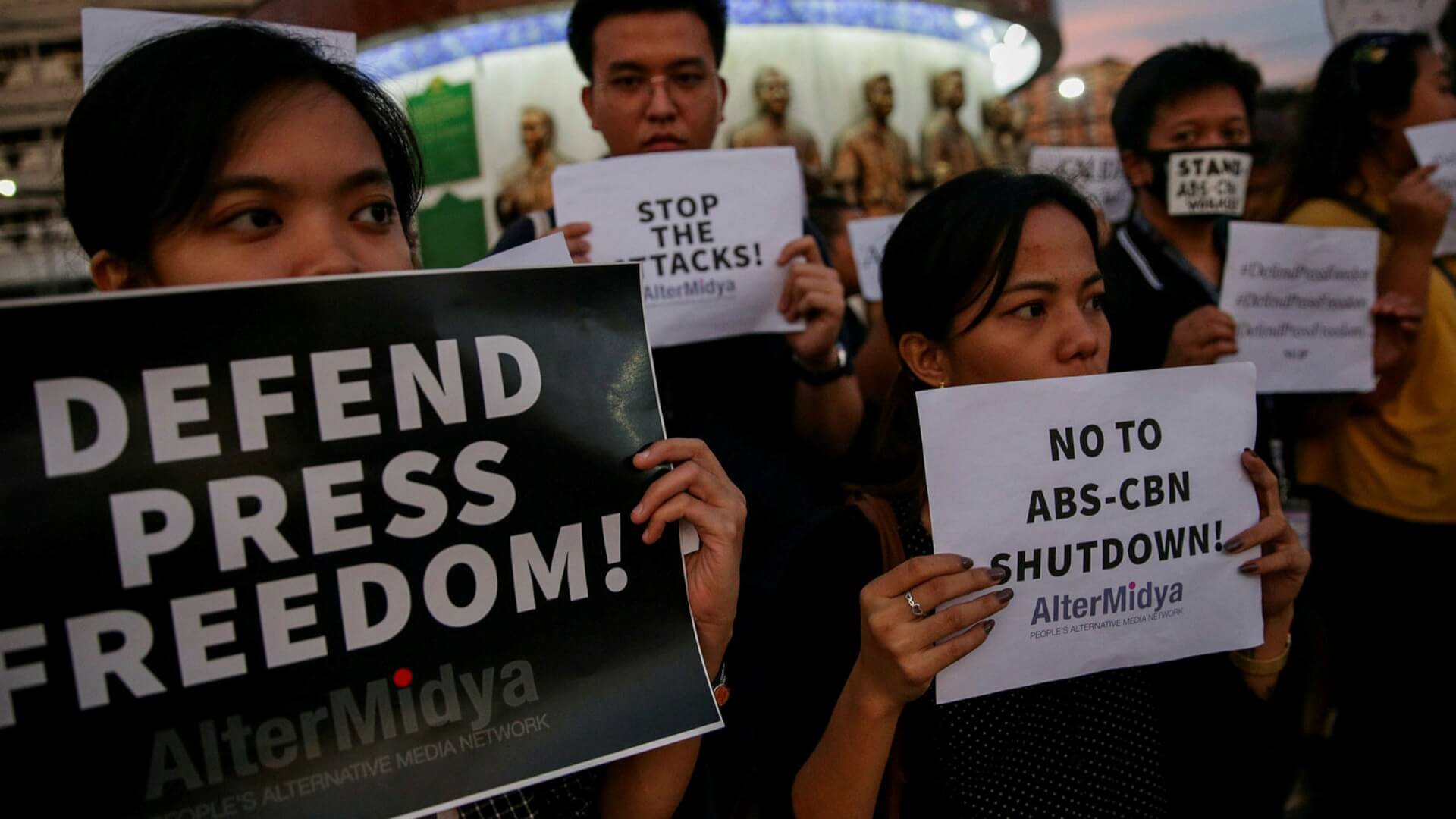The Philippines’ top broadcaster, ABS-CBN, was forced off-air on Tuesday over a stalled operating license renewal, drawing fresh accusations that the authorities are cracking down on press freedoms.
Since running afoul of President Rodrigo Duterte in 2016, ABS-CBN has seen proposals to extend its franchise languish in Congress as he repeatedly attacked the conglomerate in speeches. Duterte has been engaged in a long-running feud with ABS-CBN after the channel angered him during the 2016 presidential election by refusing to broadcast his campaign ads.
The network’s application for renewal has been pending in Congress, which is controlled by President Rodrigo Duterte’s allies, but hearings have been delayed, in part due to the coronavirus lockdown.
“Millions of Filipinos will lose their source of news and entertainment when people need crucial and timely information as the nation deals with the COVID-19 pandemic,” the media giant said in a statement. Company President Carlo Katigbak appealed to people to let their feelings on the closure be “felt, expressed and heard” for the benefit of the network’s more than 11,000 employees and millions of Filipinos who he said need the network’s services “especially now in the worst time of sickness and hunger.”
Opposition lawmakers say the suspension order undermines the fight against the coronavirus outbreak, which has infected more than 9,600 people in the country and killed more than 600. “This shutdown order goes against public welfare,” Senator Risa Hontiveros said in a statement. Antonio Albano, the vice-chairman of the lower chamber’s committee on legislative franchises, said Congress would order the telecoms body to explain its action. “We are up in arms against this,” he told DZMM radio, adding that only Congress could grant or revoke the franchise.
Rights and press freedom groups said the shutdown order was an assault on the right to free speech. The shutdown also comes with the nation battling to contain the coronavirus pandemic and an accompanying flood of online disinformation. “This is a very serious blow to press freedom in the Philippines,” said Carlos Conde of Human Rights Watch. He added, “It's hard to think that Duterte doesn’t have anything to do with this.” Amnesty International’s Butch Olano said the move was “especially reckless as the country deals with the COVID-19 pandemic”
At least two other media organizations, including leading newspaper Philippine Daily Inquirer, have come under attack from Duterte for critical reporting. The government separately accused an online news organization, Rappler, of violating the ban on foreign ownership and sought its closure. Rappler denied the allegation and continues to operate. Both Rappler and ABS-CBN are accused of violating a constitutional ban on foreign ownership of mass media outlets, allegations they deny.
The Philippines is ranked 136th out of 180 countries in RSF’s 2020 World Press Freedom Index.
Image Source: Financial Times
Philippines’ Biggest Broadcaster Forced Off-Air
The leading broadcast network in the Philippines is off the air under a government order.
May 6, 2020

